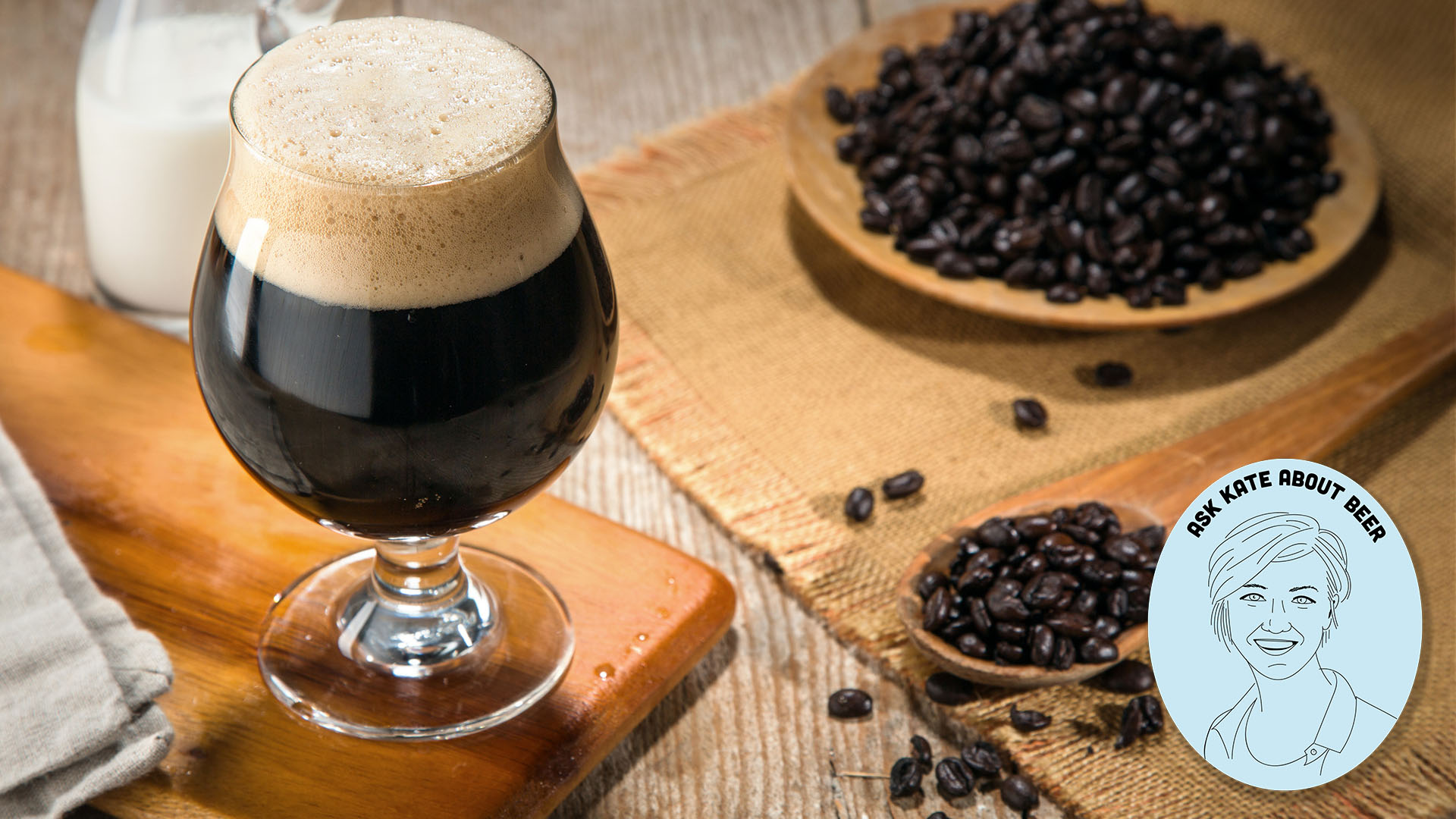Ask Kate About Beer: How Much Caffeine Is In Coffee Beers?
Welcome to Ask Kate About Beer, in which The Takeout's resident beer expert answers everything you've ever wanted to know about beer but were too drunk to ask. Have a question? Shoot it to beer@thetakeout.com
Kate, How much caffeine is in all of these coffee stouts? Sometimes I don't notice the caffeine at all, but other times I'm up all night after having one. Is there any way to tell whether I should skip the barrel-aged nightcap because of caffeine-induced insomnia?
Cheers, Chad
Hey Chad,
Great question. In all my years drinking beer, I can't recall ever seeing a label that listed a coffee beer's caffeine content, or that even made mention of the fact that it contained caffeine. I can find information on a beer's original gravity, final gravity, color via SRM scale, hop varietals, etc., but if I want to know whether it might keep me awake at night—no dice.
I reached out to a wide swath of breweries large and small that brew beers with coffee; nearly all said it wasn't something they measure. Only two that I spoke to, Boston's Harpoon Brewing and Kansas City's Boulevard Brewing, could give me a precise caffeine content reading.
"Each 12-ounce serving of Dunkin' Coffee Porter has only 2.7 mg of caffeine," Harpoon's CEO and cofounder Dan Kenary told me. "For us, we add the coffee strictly for the purpose of adding flavor to the beer and not for any reason that pertains to its caffeine content. We like coffee and we like Dunkin' and we like how Dunkin' coffee tastes in a porter." A Boulevard spokesperson tells me the brewery's new Steep Drop nitro coffee milk stout contains 7.5 mg per 12 ounces. For comparison, the USDA estimates a can of cola has roughly 29 mg of caffeine, and a cup of brewed coffee has 95 mg.
So why don't other breweries provide this information? Caffeine can be a powerful stimulant, and some people actively avoid it. Moreover, not every coffee beer will have a comparable level of caffeine, depending on how the coffee is incorporated in the brewing process. Corey Blodgett, head brewer at Milwaukee's Gathering Place Brewing, tells me caffeine levels in a coffee beer where brewers add coffee to the mash (steeping grains) will be lower than for a beer that blends cold brew into it after fermentation, for example. Beers that cold-infuse coffee could have significant caffeine levels since they're mimicking the process of making cold brew. Blodgett says many brewers assume the caffeine content of a 12-ounce can or bottle of coffee beer is roughly the same as a cup of coffee. (Editor's note: Blodgett followed up with me to clarify that this is likely an overestimate; his calculations show Gathering Place's coffee beers likely have much less caffeine per serving than coffee.)
I'll admit, I'm perplexed as to why breweries don't measure this precisely—or at all. Research from the soft drink and coffee industries indicate that UV/visible spectrophotometers can be used to measure caffeine content in liquids. Spectrophotometers are a tool that even many small breweries possess; if they're already using it to measure other variables, could it be used for caffeine too? (There is some evidence that liquids like sodas or, potentially, beer contain compounds that absorb light at the same wavelength as caffeine, rendering those readings less accurate. More research on using spectrophotometers to measure caffeine content of beer would be welcome.) Of course, it might take more consumer inquiries to make this happen. So if a beer's caffeine content matters to you, ask breweries about it.
